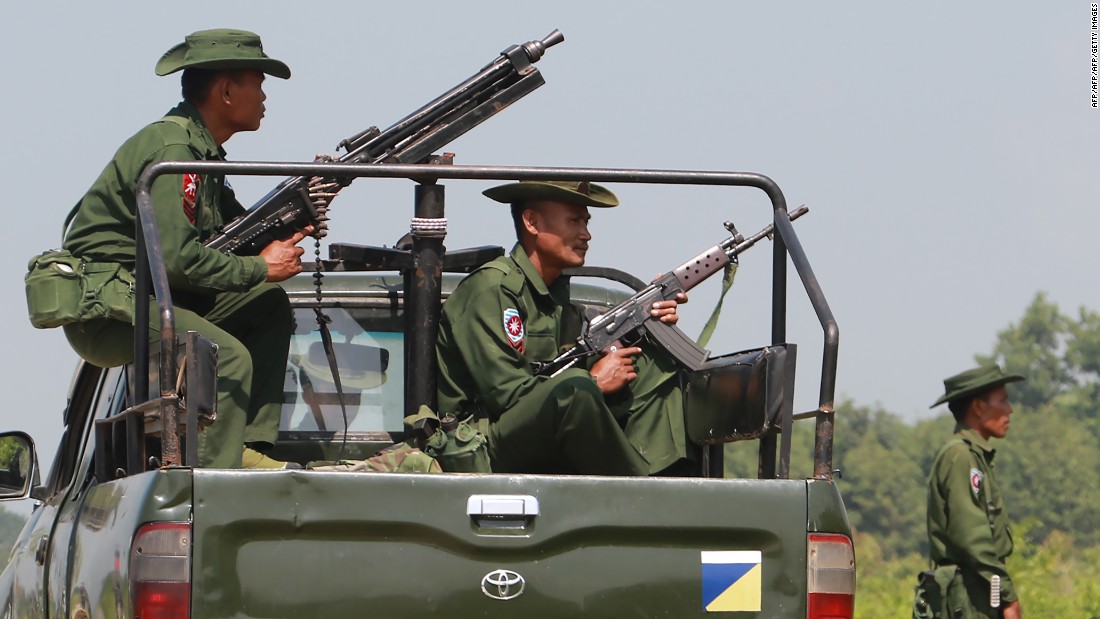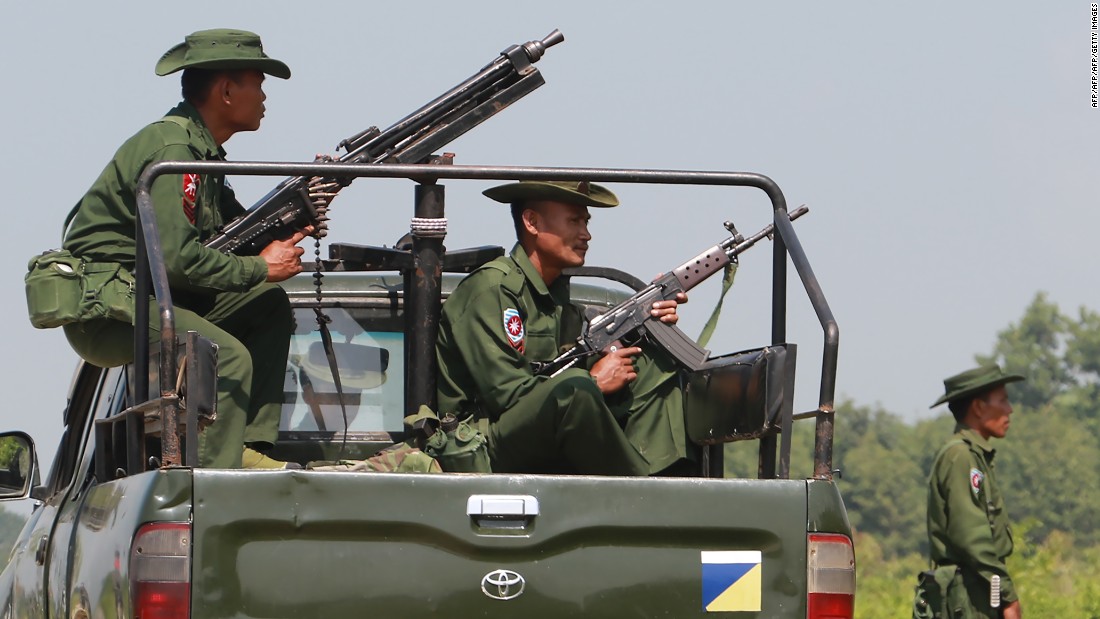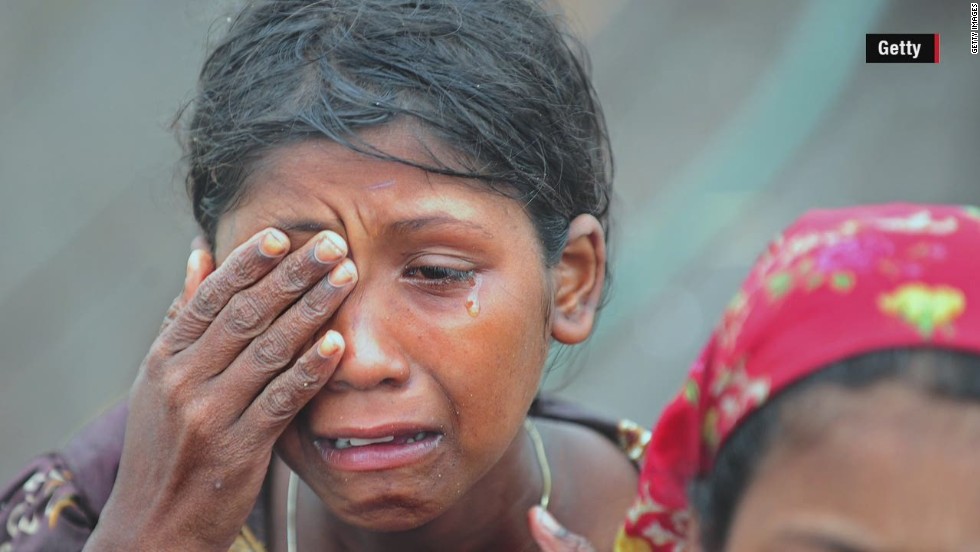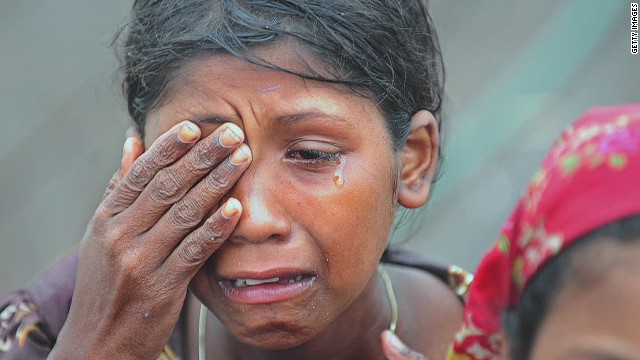‘Shoot first, ask questions later’: Violence intensifies in Rakhine State
Posted by John P. Bradford // November 27, 2016


(CNN)Concerns are mounting about escalating violence in Myanmar’s Rakhine State after a series of army raids on villages that have left dozens dead and hundreds arrested.
At least 17 members of Myanmar’s security forces and 69 people described as “violent attackers” were killed in the latest uptick of violence in the state, home to the country’s Rohingya Muslims, according to state media.
Though the government says it’s going after terrorists, Myanmar security forces have been accused of conducting a violent, heavy-handed response that’s targeting Rohingyas.
Head of the ruling National League for Democracy, Aung San Suu Kyi, has remained silent on the issue amid criticism and calls for her to do more to stop what some say amounts to genocide.
“The problem is the Burma Army has a really lousy record when it comes to civilians,” says Phil Robertson, the deputy director of Human Rights Watch’s Asia division. “It’s really shoot first, ask questions later.”
Robertson said Human Rights Watch has heard about cases of arbitrary arrests, torture, looting by Burmese soldiers and allegations of extrajudicial killings.
The government has announced hundreds of arrests of suspected attackers and terrorists in the past week,
including 31 yesterday and 234 since November 9.
Former United Nations Secretary-General Kofi Annan, who chairs the Advisory Commission on Rakhine State, issued a statement expressing his concern over the recent violence in northern Rakhine, which he said “is plunging the State into renewed instability and creating new displacement.”
The US State Department also said it was monitoring the spike in violence in Rakhine State.
In the township of Maungtaw, violent attackers were accused of torching houses by state media.
Reports surfaced that the government troops were responsible for the destruction, which the military has denied.
Satellite images from Human Rights Watch showed the extent of the damage was “greater than first thought.”
The NGO has accused the Myanmar government of limiting access to, and the information flow from, the region. It’s also calling for the Myanmar government to allow the UN to assist in investigating human rights violations.
“It’s a real escalation [of violence], and this is combined keeping out of everyone from the area,” Robertson said. “Leaving it to the Burma Army to investigate it themselves is a recipe for a cover-up.”
- The Rohingya are a stateless Muslim minority in Myanmar’s Rakhine state thought to number between 800,000 and one million.
- Myanmar does not recognize them as citizens or one of the 135 recognized ethnic groups living in the country.
- Much of this is rooted in their heritage in East Bengal, now called Bangladesh.
- Though many Rohingya have only known life in Myanmar, they are widely viewed as intruders from across the border.
- According to Human Rights Watch, laws discriminate against the Rohingya, infringing on their freedom of movement, education, and employment.
- They are denied land and property rights and ownership, and land on which they live can be taken away at any given time.
Last month, Penny Green, the director of the international state crime initiative at Queen Mary University of London has called Northern Rakhine State an
information black hole.The State Department said the US Ambassador to Burma, Scot Marciel, recently visited Rakhine State. It said the delegation stressed the need for the country to investigate the allegations “to improve transparency and information sharing, and to provide access for both media as well as humanitarian aid.”
Rakhine State is home to a large population of Rohingya Muslims, a stateless ethnic minority that’s faced discrimination and persecution for years.
The Myanmar government’s official position denies recognition of the term “Rohingya” and regards them as illegal Bengali migrants.
Recent unrest
The latest round of violence kicked off last month, when more than a dozen soldiers and police were killed after troops in the town of Maungtaw were
attacked by about 300 armed men, state media reported.
The attackers were not identified by the Myanmar government, but the United Nations said “ethnic armed organizations” had clashed with the country’s security forces.
Since then, the army and police have basically shut down the area and turn it into special ops zone, sweeping through villages where they believe militants are hiding, HRW’s Robertson said.
“The way they’re doing this is scorched-earth,” he said. “They have a right to find out who attacked the border guards, but they’re going way overboard.”
Myanmar’s government says Air Force helicopters opened fire on attackers in Rakhine State Sunday after two soldiers were killed in clashes.
As many as 500 men ambushed troops as they tried to carry out “clearance operations” in Maungtaw and Yathedaung townships near the border with Bangladesh,
according to a government statement.Read more: http://www.cnn.com/2016/11/15/asia/myanmar-rakhine-state-unrest/index.html


